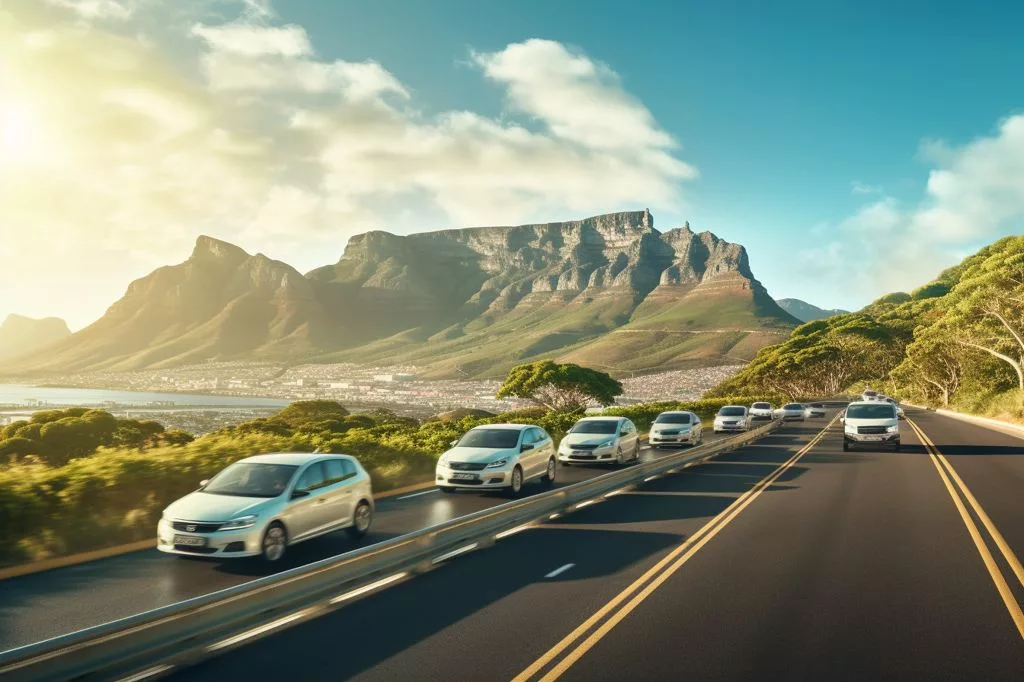Cape Town has completed a successful three-year Electric Vehicle (EV) pilot project, in partnership with GreenCape, to showcase the viability and advantages of adopting electric vehicles for municipal fleets. The project aimed to develop a local business case for the electrification of municipal vehicle fleets to reduce greenhouse gas emissions, enhance air quality, and decrease operational expenses. The project concluded that EVs in municipal fleets can significantly lower emissions, reduce fuel expenses and are more economical than their internal combustion engine counterparts. The success of the project serves as a model for other cities worldwide to adopt sustainable technology and reduce emissions.
What is Cape Town’s Electric Vehicle Initiative about?
Cape Town’s Electric Vehicle (EV) Initiative is a pilot project that aimed to showcase the viability and advantages of adopting electric vehicles for municipal fleets. It sought to develop a local business case for the electrification of municipal vehicle fleets to reduce greenhouse gas emissions, enhance air quality, and decrease operational expenses. The project was a partnership between the City of Cape Town Fleet Management Department and GreenCape. GreenCape’s case study discovered that EVs in municipal fleets can significantly lower greenhouse gas emissions, reduce fuel expenses, and are more economical than their internal combustion engine counterparts.
Pioneering Electric Vehicle Project in Cape Town
Cape Town, a metropolis renowned for its lively culture and breathtaking landscapes, has achieved yet another milestone with the triumphant conclusion of a three-year Electric Vehicle (EV) pilot project. This revolutionary endeavor aimed to showcase the viability and advantages of adopting electric vehicles for municipal fleets, in partnership with GreenCape, a leading organization dedicated to fostering sustainable growth.
Spearheaded by the City’s Fleet Management Department, the project incorporated the City of Cape Town Traffic Services and sought to develop a local business case for the electrification of municipal vehicle fleets. Alderman Theresa Uys, City of Cape Town Mayoral Committee Member for Corporate Services, elaborated on the project’s purpose. “Our objective with this pilot project was to ultimately establish a robust local business case for the electrification of municipal vehicle fleets. Municipal fleet managers considering the acquisition of EVs for their fleets can now refer to and utilize this case study as part of their business justifications.”
The primary motivation for embracing electric vehicles is the reduction of greenhouse gas emissions and enhancement of air quality in urban areas while simultaneously decreasing operational expenses. Prian Reddy, Senior Analyst: Sustainable Mobility and Energy Storage at GreenCape, confirmed the project’s accomplishments: “The City of Cape Town has successfully concluded a three-year electric vehicle pilot project, which has validated the business case for the electrification of municipal vehicle fleets. Battery electric vehicle technology, combined with renewable energy for charging, is a feasible mechanism to attain the City’s net-zero emission target by 2050.”
Key Findings from GreenCape’s Case Study
GreenCape’s thorough case study disclosed several crucial findings, such as:
- EVs employed in municipal fleets can significantly lower greenhouse gas emissions, enhance air quality in urban areas, and reduce fuel expenses.
- There is a compelling business case for procuring electric passenger vehicles for municipal fleets, which can function as a decarbonization catalyst in municipalities, particularly when charged with renewable energy.
- It is essential that EVs acquired by municipalities are suitable for their intended purpose and supported by an appropriate charging network to satisfy operational needs.
- When taking into account purchase price and operational costs, electric passenger vehicles are more economical than their internal combustion engine (ICE) counterparts.
The City’s Traffic Services confirmed that the electric vehicles were effective as patrol vehicles in terms of reducing fuel costs and were user-friendly in navigating Cape Town’s bustling Central Business District. The City supports the exploration of new technologies that are not only cost-effective but also efficient in delivering services to Cape Town’s residents.
A Sustainable Future for Municipal Fleets
As a consequence of these discoveries, an increasing number of municipalities are likely to contemplate adopting electric vehicles for their fleets in an effort to decrease emissions, enhance air quality, and reduce operational costs. Cape Town’s triumph in this pilot project signifies a substantial milestone in the quest for a more sustainable future and serves as a model for other cities around the world.
With the intensifying urgency to combat climate change and the escalating awareness of the benefits of electric vehicles, municipalities worldwide are taking notice of Cape Town’s accomplishments. The city’s dedication to exploring sustainable technology and its commitment to reducing emissions are praiseworthy actions that other municipalities can emulate and learn from.
This pilot project also underscores the significance of collaboration between cities and organizations like GreenCape to promote sustainable development and implement innovative solutions. The success of the EV pilot project in Cape Town acts as a beacon of hope and an inspiration for other cities globally, demonstrating that a cleaner, greener, and more sustainable future is attainable through determined action.
The complete case study by GreenCape, outlining the process, findings, and recommendations, can be accessed here.
1. What is Cape Town’s Electric Vehicle Initiative about?
Cape Town’s Electric Vehicle (EV) Initiative is a pilot project that aimed to showcase the viability and advantages of adopting electric vehicles for municipal fleets. It sought to develop a local business case for the electrification of municipal vehicle fleets to reduce greenhouse gas emissions, enhance air quality, and decrease operational expenses.
2. Who partnered with the city of Cape Town for the Electric Vehicle Initiative?
GreenCape partnered with the City of Cape Town Fleet Management Department for the Electric Vehicle Initiative.
3. What were the main goals of the Electric Vehicle Initiative?
The main goals of the Electric Vehicle Initiative were to reduce greenhouse gas emissions, enhance air quality, and decrease operational expenses.
4. What were the key findings of GreenCape’s case study?
GreenCape’s case study found that EVs employed in municipal fleets can significantly lower greenhouse gas emissions, enhance air quality in urban areas, and reduce fuel expenses. There is a compelling business case for procuring electric passenger vehicles for municipal fleets, which can function as a decarbonization catalyst in municipalities, particularly when charged with renewable energy. It is essential that EVs acquired by municipalities are suitable for their intended purpose and supported by an appropriate charging network to satisfy operational needs. When taking into account purchase price and operational costs, electric passenger vehicles are more economical than their internal combustion engine (ICE) counterparts.
5. What was the role of the City’s Traffic Services in the Electric Vehicle Initiative?
The City’s Traffic Services confirmed that the electric vehicles were effective as patrol vehicles in terms of reducing fuel costs and were user-friendly in navigating Cape Town’s bustling Central Business District.
6. What can other municipalities learn from Cape Town’s Electric Vehicle Initiative?
Other municipalities can learn from Cape Town’s Electric Vehicle Initiative that adopting electric vehicles for their fleets can significantly lower emissions, reduce fuel expenses, and are more economical than their internal combustion engine counterparts. Collaboration between cities and organizations like GreenCape is crucial to promote sustainable development and implement innovative solutions.
7. Why is reducing greenhouse gas emissions important?
Reducing greenhouse gas emissions is important because it can help combat climate change, which has significant impacts on the environment, human health, and the economy.
8. Where can I access the complete case study by GreenCape?
The complete case study by GreenCape, outlining the process, findings, and recommendations, can be accessed here: https://greencape.co.za/wp-content/uploads/2023/06/Case-Study-%E2%80%93-Electrification-of-Municipal-Vehicle-Fleet.pdf.








